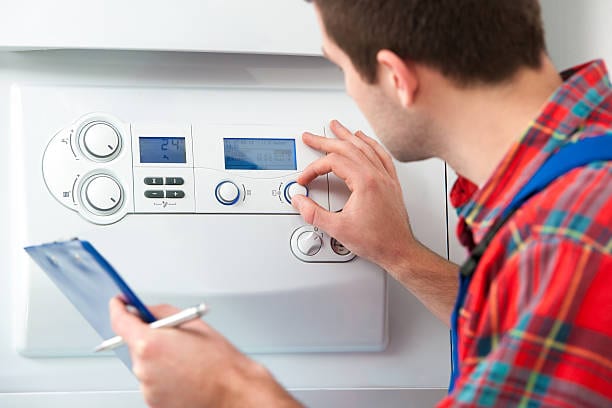- Almost four in ten couples (39%) argue over the temperature of their thermostat, with men turning on the heating a week later than women[1]
- Mix of cold weather and homeworking means 60% of households have already turned their heating on, with the average date being 25 September[2]
- The central heating switch-on date for 2020 is more than three weeks earlier than last year’s date, 17 October[3]
- People in the North East turned on their heating on 13 September, while people in the East Midlands waited 22 days until 5 October[2]
- Uswitch.com offers tips on the best ways to save energy and money at home during the winter.
The temperature of the home is causing heated arguments in many households, with almost two in five couples (39%) disagreeing over how hot the thermostat should be set[1], reveals new research by Uswitch.com, the comparison and switching service.
There is a gender split over the heating too, with three in ten men (31%) saying their better half wants the house to be hotter, and a fifth of women (20%) saying their partner would like the house to be colder.
The debate is affecting the whole family, with almost four in ten children (38%) disagreeing with their parents over the temperature of the thermostat, and six in ten (61%) wishing the house was hotter.
When it comes to UK flatshares, a third of housemates don’t see eye-to-eye on the subject, with half wanting it hotter and half wanting it colder[1]. These disagreements could be particularly playing out in university accommodation, as students returned to house shares and halls in September.
Some 16.8 million households (61%) turned their heating on in September as a cold snap hit[5], with September 25 the average switch-on date[2]. However, last year, households didn’t turn their heating on until 17 October[3] — more than three weeks later than the 2020 date. The fact millions of people are working from home may have led many to turn their heating on earlier than in previous years.
In a further sign of the heating gender divide, men across the country turned on their heating on 29 September, a full week after women switched theirs on (22 September)[4].
North/south divide: When the regions turned their heating on
|
Region |
Switch on date |
|
North East |
13 September |
|
Scotland |
17 September |
|
Northern Ireland |
18 September |
|
Yorkshire and Humberside |
19 September |
|
North West |
20 September |
|
West Midlands |
23 September |
|
South East |
25 September |
|
Wales |
30 September |
|
London |
30 September |
|
East of England |
02 October |
|
South West |
03 October |
|
East Midlands |
05 October |
Source: Uswitch.com
People in the North East were the first to feel the cold this year and turned on their heating as early as 13 September this year. Scots switched theirs on four days later, followed by people in the North West on 20 September. Those in the East of England held out for the longest – finally putting on theirs on 5 October[2].
To help, Uswitch.com has produced a guide on free energy-saving tips which show the best ways to save energy and money at home. Turning your thermostat down by just 1°C can save you as much as £80 per year, and it may be worth investigating if your loft needs better insulation, as a quarter of your home’s heat is lost through the roof.
Sarah Broomfield, energy expert at Uswitch.com, comments: “It’s clear that heating the home is leading to heated arguments in many households with some preferring to be cosy while others want to keep cool. But choosing the temperature to heat your home is also a big financial decision, as it’s one of the biggest contributors to higher energy bills.
“Anyone who is worried about paying for their heating should contact their energy supplier as soon as possible to find out what help is available. They can also ask for energy savings advice and check if they are eligible for free insulation grants, such as the newly launched Green Homes Grant, to help keep costs down longer term.
“Households can also typically make significant savings when they switch their energy supplier – so now is a good time to run an online comparison to see what energy deals you could be getting.”
Find out how you could save nearly £1,000 a year with Uswitch here.

| [donate]
| Help keep news FREE for our readersSupporting your local community newspaper/online news outlet is crucial now more than ever. If you believe in independent journalism,then consider making a valuable contribution by making a one-time or monthly donation. We operate in rural areas where providing unbiased news can be challenging. |



















